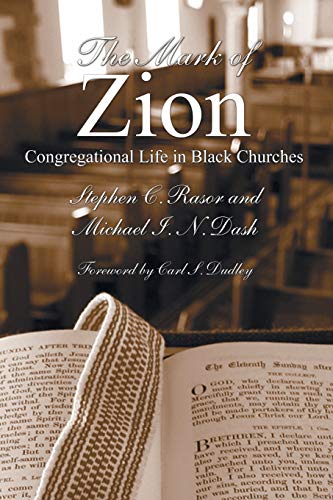All books / Book
The Mark of Zion: Congregational Life in Black Churches

| Full title: | The Mark of Zion: Congregational Life in Black Churches |
|---|---|
| ISBN: | 9781608995868 |
| ISBN 10: | 1608995860 |
| Authors: | Rasor, Stephen C. |
| Publisher: | Wipf & Stock Publishers |
| Num. pages: | 160 |
| Binding: | Paperback |
| Language: | en |
| Published on: | 2010 |
Read the reviews and/or buy it on Amazon.com
Synopsis
Authors Stephen Rasor and Michael Dash of The Interdenominational Theological Center faculty arc uniquely prepared and positioned . . . Grounded in practical wisdom from their years of personal experience, scholarly research, and oversight of ministerial students, they have given us a truly and immanently useful report on African American congregational life at the new millennium.Rasor and Dash record the views of leaders in 1,863 congregations in the black church tradition. Here for the first time, we can sec the similarities between black churches and other major religious movements throughout the nation . . . In this profile we also see the bold uniqueness of the black church tradition, its energy and tenacity across generations and throughout America."—from the ForewordIn The Mark of Zion: Congregational Life in Black Churches, the companion book to The Shape of Zion: Leadership and Life in Black Churches, Rasor and Dash propose that the black experience in America offers a significant presence in the religious landscape of contemporary American society. In rural, urban, storefront, and mega-churches, African American congregations foster an inward journey of spiritual growth and an outward journey of community outreach.To illustrate their thesis, the authors—based on data supported by the Gallup poll—explore African American congregational life from four perspectives that include: a profile of black congregational life from a national perspective; an example of a local church setting that illustrates some aspect of that national profile; assistance to churches in considering the applicability of the profile and local example to their experiences; and an invitation for churches to consider future ministry in the light of these findings and the challenges that arise from this exploration.